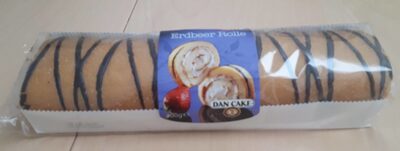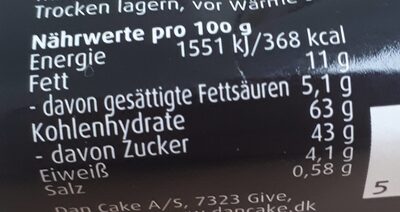Erdbeer Rolle - Dancake - 400 g
This product page is not complete. You can help to complete it by editing it and adding more data from the photos we have, or by taking more photos using the app for Android or iPhone/iPad. Thank you!
×
Barcode: 5709152009880 (EAN / EAN-13)
Common name: Rührkuchenrolle mit 21 % Cremefüllung und 21 % Erdbeer-Fruchtfüllung, dekoriert mit 1,3 % kakaohaltiger Fettglasur
Quantity: 400 g
Packaging: de:Kunststofffolie, de:Papierschale
Brands: Dancake
Categories: Snacks, Sweet snacks, Biscuits and cakes, Cakes
Labels, certifications, awards:
Green Dot
Manufacturing or processing places: Give, Dänemark
Link to the product page on the official site of the producer: http://www.dancake.dk
Stores: Netto
Countries where sold: Germany
Matching with your preferences
Environment
Packaging
Transportation
Threatened species
Report a problem
Data sources
Product added on by openfoodfacts-contributors
Last edit of product page on by kiliweb.
Product page also edited by predatorix, yuka.sY2b0xO6T85zoF3NwEKvlmBEWIH4ow_uB0TkgW6WnOqxMobHWIBWuJDoKqs.








